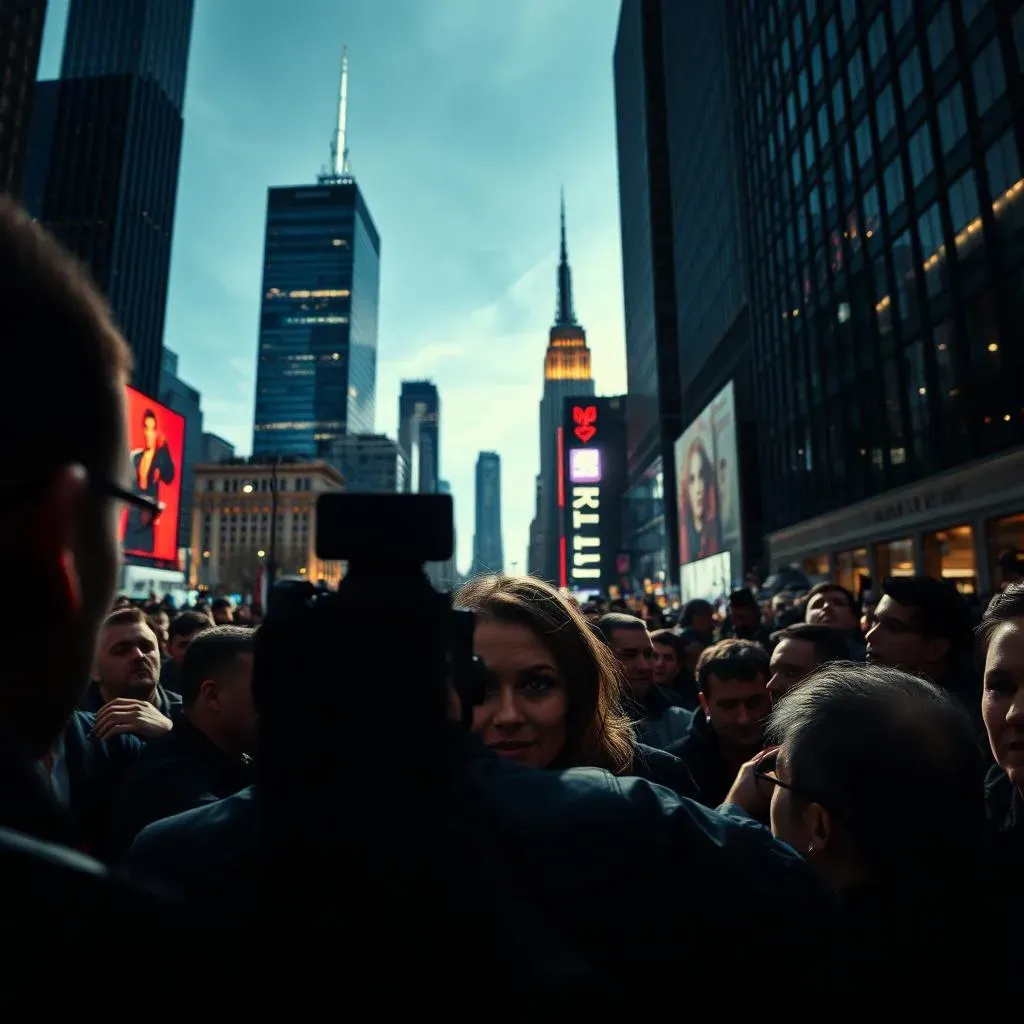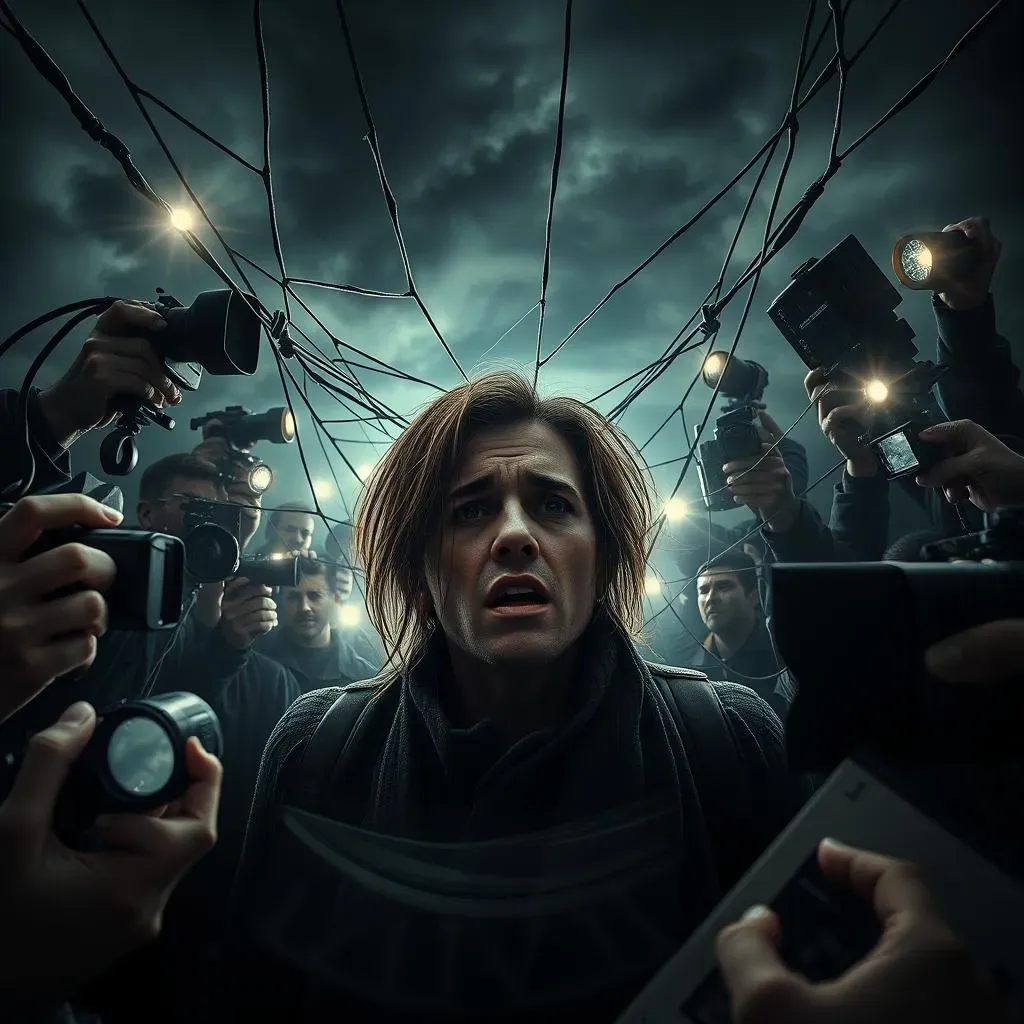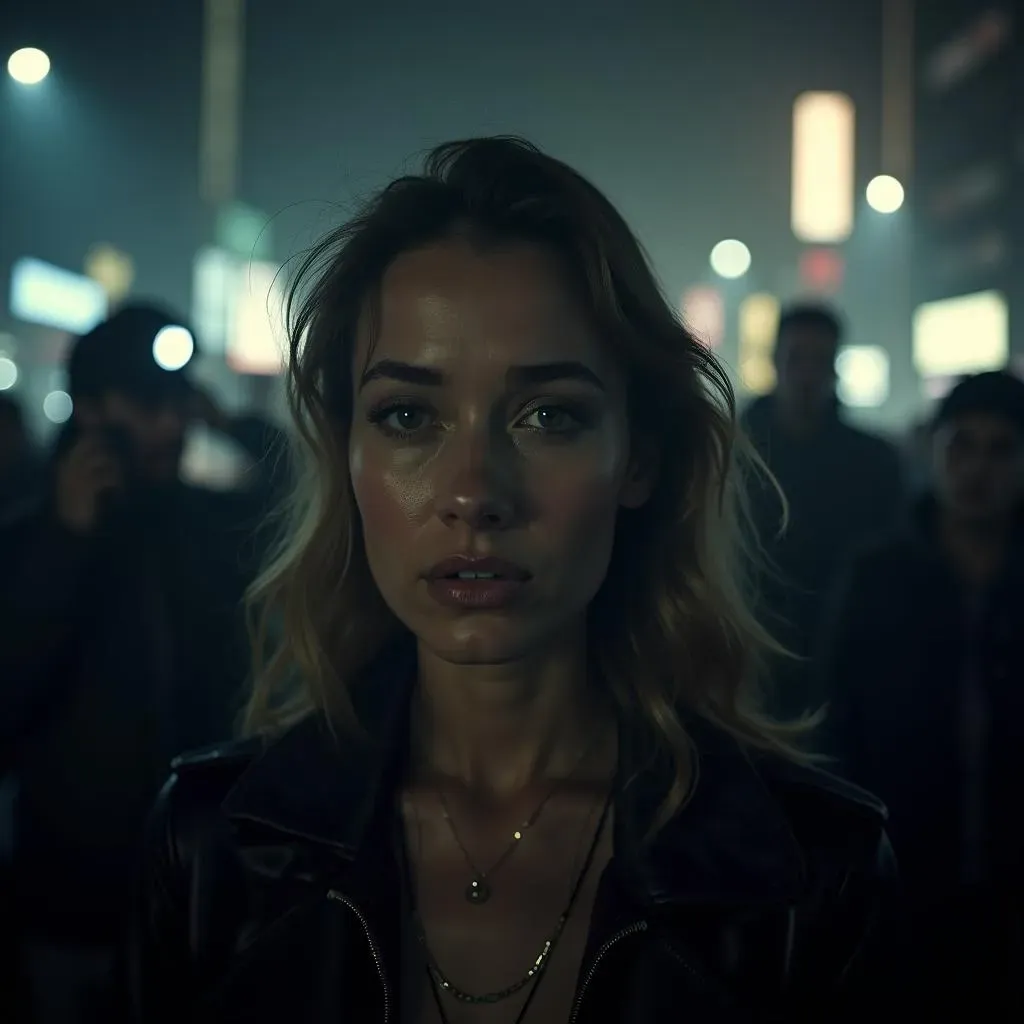Table of Contents
Ever wondered what it’s like to be a celebrity? It seems glamorous, sure, but there's a dark side that often gets overlooked: the relentless pursuit of privacy by the paparazzi. We see their pictures splashed across magazines and websites, but what we often forget is that behind those photos are real people whose lives are constantly under a microscope. This article isn’t about the glitz and glamour; it's about the real cost of fame and the uncomfortable truth about celebrity privacy invasions paparazzi. We'll explore how the paparazzi's actions blur the lines between public interest and personal intrusion, often exploiting vulnerable moments for profit. We'll also discuss how this constant surveillance impacts celebrities' mental health. It’s time to rethink our obsession with celebrity lives and acknowledge the very real harm caused by the invasion of privacy. Get ready to challenge what you think you know about fame and its price.
The Price of Fame: When Paparazzi Cross the Line

The Price of Fame: When Paparazzi Cross the Line
The Illusion of Public Property
We often see celebrities as these larger-than-life figures, their faces plastered everywhere. It's easy to start thinking their lives are open books, that everything they do is fair game for public consumption. But here's the thing: fame doesn't erase a person's right to privacy. Imagine someone following you around with a camera, snapping pictures of you grabbing coffee or walking your dog. It’d feel intrusive, right? Well, that's the daily reality for many celebrities, who are constantly under surveillance.
The line between public persona and private life gets so blurred that some people start thinking celebrities have no right to complain. It's like they've forfeited their personal space just by being famous. But that's a dangerous idea. Everyone, regardless of their job or how much money they make, deserves to have some control over their own image and personal life.
The Danger of the Lens
It's not just about feeling uncomfortable; the paparazzi's actions can actually put celebrities in danger. Think about those high-speed car chases, where photographers are chasing after celebrities just to get that "perfect" shot. It's incredibly reckless, and it puts not only the celebrity in danger but also the public around them. It’s a high-stakes game where the desire for a photo can overshadow safety.
Then there's the use of long-range lenses, which allow photographers to capture intimate moments from afar. These photos, taken without consent, can feel like a violation. It’s like having someone secretly look into your window, invading your home without physically entering it. This constant intrusion can create an environment of fear and paranoia for celebrities. It’s not just annoying; it’s a real threat to their personal safety and well-being.
Type of Invasion | Description | Potential Harm |
|---|---|---|
Car Chases | High-speed pursuit of celebrities for photos | Physical danger, accidents, public safety risk |
Long-Range Lenses | Capturing private moments from a distance | Violation of privacy, emotional distress, paranoia |
Unwanted Crowds | Paparazzi and fans surrounding celebrities | Anxiety, panic, potential for physical harm |
The Human Cost
At the end of the day, celebrities are still human beings with the same emotions and needs as everyone else. They're not characters in a movie, and their lives shouldn't be treated like a reality show. The constant invasion of their privacy takes a toll. It's not just about those "bad hair day" photos; it's about the constant feeling of being watched, the lack of control over their own lives, and the stress that it brings.
We need to start seeing celebrities as people first and "stars" second. It's time to question the culture that encourages this kind of invasive behavior and demand a more respectful approach to celebrity culture. It’s about recognizing that fame comes with its own set of challenges, and the paparazzi's actions only make those challenges that much harder to navigate.
Celebrity Privacy Invasions: A Vicious Cycle of Exploitation

Celebrity Privacy Invasions: A Vicious Cycle of Exploitation
The Demand Feeds the Beast
Here's the ugly truth: the paparazzi wouldn't exist if there wasn't a demand for their photos. It’s like a twisted feedback loop. The more we click on those invasive pictures, the more we’re telling the photographers that it's okay to keep pushing boundaries. Each time we share a scandalous image or gossip about a celebrity’s private life, we’re fueling the fire. This demand creates a market for these photos, making the invasion of privacy not just a hobby, but a lucrative business. We, as consumers, have a responsibility to recognize our role in this cycle and ask ourselves if our curiosity is worth the human cost.
The media plays a big part too. Outlets often prioritize sensationalism over ethical reporting, publishing these invasive photos without much thought about the impact on the celebrity. They know these images generate clicks and views, and that ultimately translates to revenue. It's a cycle where profit is prioritized over people. It's time for media outlets to be more accountable and for us, as readers, to demand better reporting. We need to support media that respects individual privacy and refrains from publishing exploitative content.
The Erosion of Boundaries
The relentless pursuit of celebrities’ private moments normalizes the idea that they don’t deserve personal boundaries. It’s like because they’re famous, they’ve somehow forfeited their right to say “no.” This warped view leads to situations where paparazzi and fans feel entitled to their time, their space, and their personal lives. It's a dangerous form of entitlement that strips celebrities of their personhood and turns them into mere commodities. They’re no longer seen as individuals with families and feelings, but rather as subjects of public consumption.
This constant pressure can be incredibly isolating for celebrities. They are forced to live their lives under constant scrutiny, making it hard to have genuine relationships and authentic experiences. It creates a culture of distrust and makes it difficult for them to relax and be themselves. This erosion of boundaries isn’t just an inconvenience; it's a fundamental violation of their human rights. We need to remember that celebrities are people first, and their fame doesn’t make them less deserving of respect and privacy.
Element | Description | Impact |
|---|---|---|
Demand for Photos | Public consumption of celebrity photos | Drives the paparazzi industry, encourages invasion |
Media Sensationalism | Prioritizing profit over ethical reporting | Normalizes invasive behavior, perpetuates the cycle |
Erosion of Boundaries | Celebrities' personal space disregarded | Loss of privacy, feelings of isolation, dehumanization |
The Mental Toll: How Constant Surveillance Impacts Celebrities

The Mental Toll: How Constant Surveillance Impacts Celebrities
The Weight of the World
Imagine never truly being alone. Every trip to the grocery store, every family outing, every private moment is a potential photo op for the paparazzi. This constant surveillance can lead to extreme anxiety and stress. It's like living in a fishbowl, where every action is scrutinized, judged, and potentially splashed across the internet. Celebrities often feel like they're walking on eggshells, always having to be "on," which is exhausting and emotionally draining. This constant pressure can make it nearly impossible to relax and be themselves, leading to a pervasive sense of unease and a loss of control over their own lives.
The fear of being caught in a compromising situation or having their private lives exposed can be debilitating. It's not just about the occasional bad photo; it's about the constant fear of invasion, which can lead to heightened levels of stress and anxiety. This constant worry can disrupt sleep patterns, create mood swings, and even lead to panic attacks. The mental toll of living under such intense scrutiny is significant and often overlooked.
The Erosion of Self
When your every move is dictated by the fear of the paparazzi, it's easy to lose sight of who you are. Celebrities often struggle with maintaining their sense of self when they're constantly being portrayed by the media. This can lead to a disconnect between their public persona and their private identity. The constant scrutiny can erode their self-esteem, as they become overly concerned with how they're perceived by others. It's like constantly living in a distorted mirror, where your own reflection is always being judged and criticized.
The lack of control over their own image and narrative can be incredibly frustrating and disempowering. They may feel like they're trapped in a role they didn't choose, constantly having to manage their image and public perception. This can lead to feelings of resentment, anger, and a sense of loss. The erosion of self can make it difficult for celebrities to maintain a healthy mental state and can contribute to a range of mental health issues.
Impact | Description | Consequence |
|---|---|---|
Constant Surveillance | Being watched and photographed constantly | Anxiety, stress, loss of privacy |
Loss of Self | Struggling to maintain a sense of identity | Erosion of self-esteem, identity issues |
Mental Health Issues | Increased risk of anxiety, depression | Impaired well-being, isolation |
Seeking Refuge
It’s no surprise that many celebrities struggle with mental health issues. The constant pressure and scrutiny they face make them more susceptible to anxiety, depression, and other mental health problems. Some turn to unhealthy coping mechanisms, such as substance abuse, in an attempt to escape the constant stress. It's a desperate attempt to find some relief from the overwhelming pressure they're under. This is a serious issue that often gets swept under the rug, as we tend to see celebrities as being immune to these challenges.
The need for privacy isn't a luxury; it's a necessity for mental health. Celebrities deserve the same respect and boundaries as anyone else. It's up to us to recognize our role in this cycle and demand a more humane approach to celebrity culture. We need to push back against the normalization of privacy invasions and support celebrities in their pursuit of a more balanced and healthy life. It’s time to stop seeing them as characters in a story and start recognizing them as human beings with real feelings and real needs.